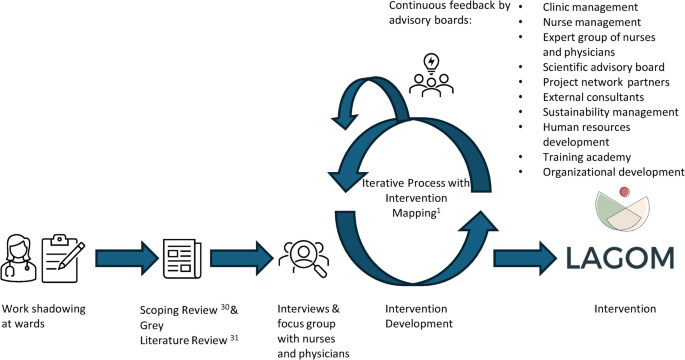
Contributed by Debbie Clason, staff writer, Healthy Hearing, and Emily Ostrowski, content manager, Healthy Hearing
Last updated
Key points:
-
Both acute and chronic stress can affect your hearing and may contribute to tinnitus.
-
Chronic high stress levels can lead to health conditions that damage blood vessels and cause permanent hearing loss.
-
Managing your stress levels can help you protect your hearing and find relief from tinnitus.
Many Americans cope with chronic high levels of stress and anxiety, which are linked to a variety of health problems. Long-term, the physical changes from chronic stress may trigger hearing loss and other inner ear issues.
Can stress affect hearing?
Yes. Both acute and chronic stress can affect your hearing.
Acute stress can temporarily restrict blood flow to the cochlea which can lead to muffled or altered hearing. Additionally, stress-induced muscle tension around the ears and jaw can worsen tinnitus (ringing in the ears) and cause temporary changes in hearing or sound perception. In these instances, your hearing is likely to return to normal as your stress levels come down. This is known as somatic tinnitus.
Chronic stress can increase risk of permanent hearing loss

tinnitus, or ringing in the ears.
While long-term stress may not directly cause hearing loss, its effects on the body can put your hearing health at risk.
When you are chronically stressed, your body doesn’t receive a clear signal to return to normal like it does when the stress is acute.
Over time, high stress levels can lead to serious health problems such as heart disease, high blood pressure, diabetes and other illnesses which are known to negatively impact hearing.
Why this happens
Your hearing can be affected because these conditions damage your blood vessels and impact blood flow to your inner ear. The small sensory hairs in your inner ear play a crucial role in hearing ability and they rely on healthy blood flow to work properly.
If these sensors get damaged or die, they can’t send sound signals to your brain. Unfortunately, this damage cannot be repaired and the result is permanent sensorineural hearing loss.
Can stress cause tinnitus?
Yes, research indicates that stress can both worsen existing tinnitus and, in some cases, may play a role in its onset.
When you are stressed you experience both reduced blood flow and a heightened awareness of your of internal sensations, making the ringing or buzzing in your ear more noticeable and harder to ignore. Many people report that stress is a huge trigger for worsening their tinnitus symptoms.
Unfortunately, stress and tinnitus can feed into one another creating an unfortunate cycle where tinnitus can increase frustration, anxiety, and impact sleep. This then leads to higher stress levels which further worsens the perception of tinnitus.
Poor circulation from stress-related illnesses can also lead to pulsatile tinnitus, a type of tinnitus that sounds like a rhythmic noise in your ear, often described as beating or pumping in sync with your heartbeat. Because pulsatile tinnitus can potentially be a sign of a serious underlying condition it’s important to seek medical attention if you experience symptoms.
Managing stress can protect your hearing health
Though you can’t always prevent hearing loss, managing the amount of stress can help reduce your risk of developing hearing problems as well as minimize your tinnitus symptoms. While there are many different ways to reduce stress, we recommend the following tips:
- Regular exercise. Just 20 minutes of walking, biking or other physical activity each day provides health benefits for both your body and mind.
- Meditate. Regular meditation can help slow your mind, relax tense muscles and even lower blood pressure. Meditation has also been known to significantly improve tinnitus.
- Smile and laugh. Moving those facial muscles in particular eases tension and sends a corresponding happy signal to the brain.
- Get social support. Talk to someone who can understand what you’re going through and provide positive feedback.
- Prioritize sleep. Sleep is a crucial part of of our overall health and well-being. Regular high-quality sleep can help us manage our stress levels. Taking steps like limiting caffeine intake, avoiding artificial light close to bedtime and developing a nightly routine can all make sleep easier. If tinnitus is keeping you up, try these 11 tips.
- Cognitive behavioral therapy (CBT). CBT helps reduce stress by teaching people how to identify and challenge negative thought patterns that contribute to feelings of anxiety and depression. By reframing these thoughts with more balanced perspectives, CBT promotes healthier coping strategies and better stress management.
Your hearing healthcare professional can help
If you’re not hearing as well as you used to, make an appointment to see a hearing healthcare professional. One of the very first things they will do is get to know your personal hearing health and medical history, along with any concerns you may have.
Afterwards, they will administer a non-invasive hearing evaluation to determine whether or not you have hearing loss. Based on your history and the results of your hearing evaluation, you’ll work together to create a customized treatment plan based on your budget, lifestyle and hearing expectations.
link







